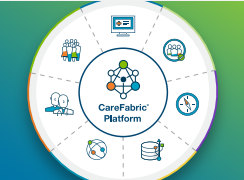Behavioral health organizations, including community mental health centers, psychiatric hospitals, addiction treatment and other key providers consistently lag behind acute care in the adoption of technology. Despite an increased demand for services and the fact they serve some of the nation’s most at-risk populations, these providers weren’t fully eligible for federal financial incentives on a par with acute care providers for purchase of electronic health record (EHR) platforms, key to enhancing care quality and efficiency in all healthcare settings.
Significantly, the Improving Access to Behavioral Health Information Technology Act is included in the SUPPORT for Patients and Communities Act, a large opioid prevention, treatment and recovery bill approved by Congress and headed to President Trump’s desk for signature. This legislation authorizes a pilot program to be overseen by the Center for Medicare and Medicaid Innovation (CMMI) that would provide incentives for behavioral health and substance use treatment provider organizations to adopt EHR technology and utilize it to improve quality and coordination of care. The health IT bill was championed by bipartisan lead sponsors Cong. Lynn Jenkins (R-KS), Cong. Doris Matsui (D-CA), Sen. Sheldon Whitehouse (D-RI) and Sen. Rob Portman (R-OH).
Here is a link to the bill language. Final eligibility details and funding amount for the incentives will be promulgated by CMMI in early 2019.
“Community-based behavioral health providers, addiction treatment facilities, psychiatric hospitals and the other providers included in this bill must be able to adopt health information technology at roughly the same rate as hospitals and doctors nationwide,” Netsmart Executive Vice President Kevin Scalia said. “If not, care coordination across the spectrum of primary care, human services and post-acute care will rapidly become impossible – compromising quality of care for some of the most vulnerable people and further increasing cost of care.”
Implementation of EHR solutions in behavioral healthcare provider organizations will broaden the IT infrastructure necessary to address the nationwide opioid crisis by helping facilitate whole-person care and providing access to real-time, accurate data for clinical and operational decision-making.
Netsmart became a leading advocate for incentive funding eight years ago after the Patient Protection and Affordable Care Act (ACA) and related HITECH Act excluded behavioral health and substance use treatment providers from full participation in the Meaningful Use program in parity with acute care. Netsmart was also a founder of the BHIT Coalition, a group dedicated to advancing public policy initiatives that tap the full potential of technology to deliver coordinated, integrated services and treatment for people with mental health and addiction disorders.








